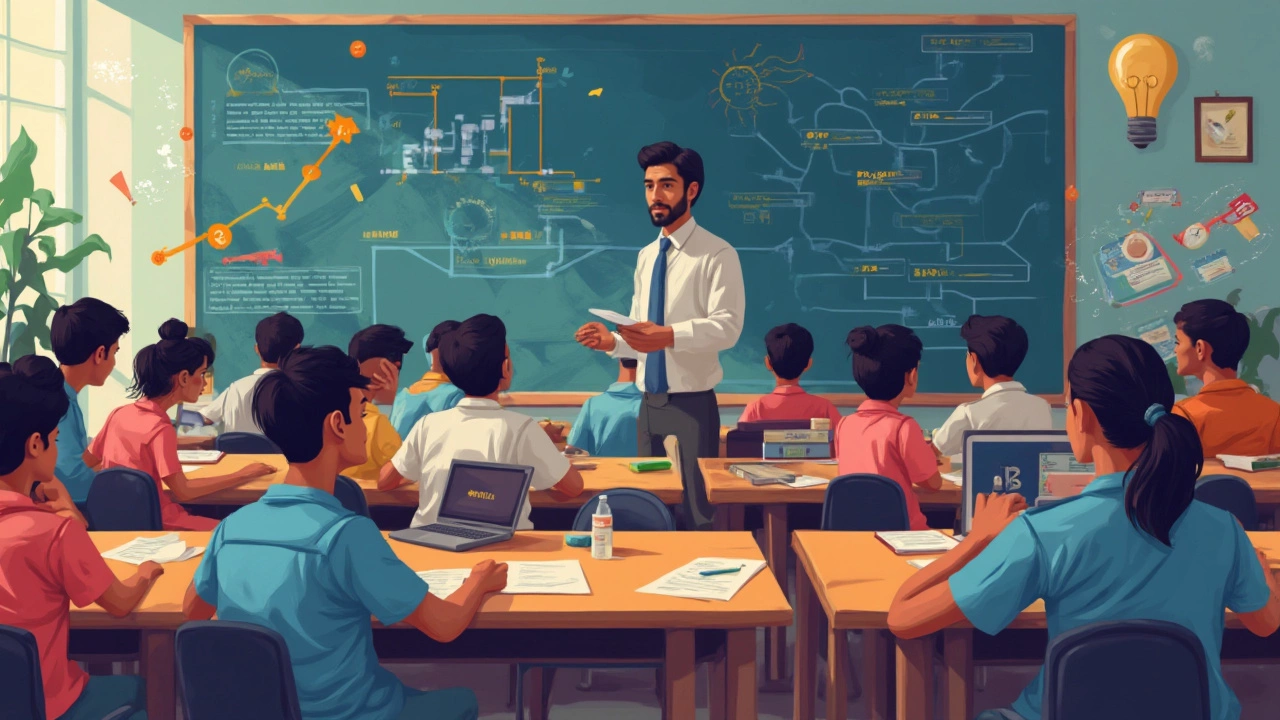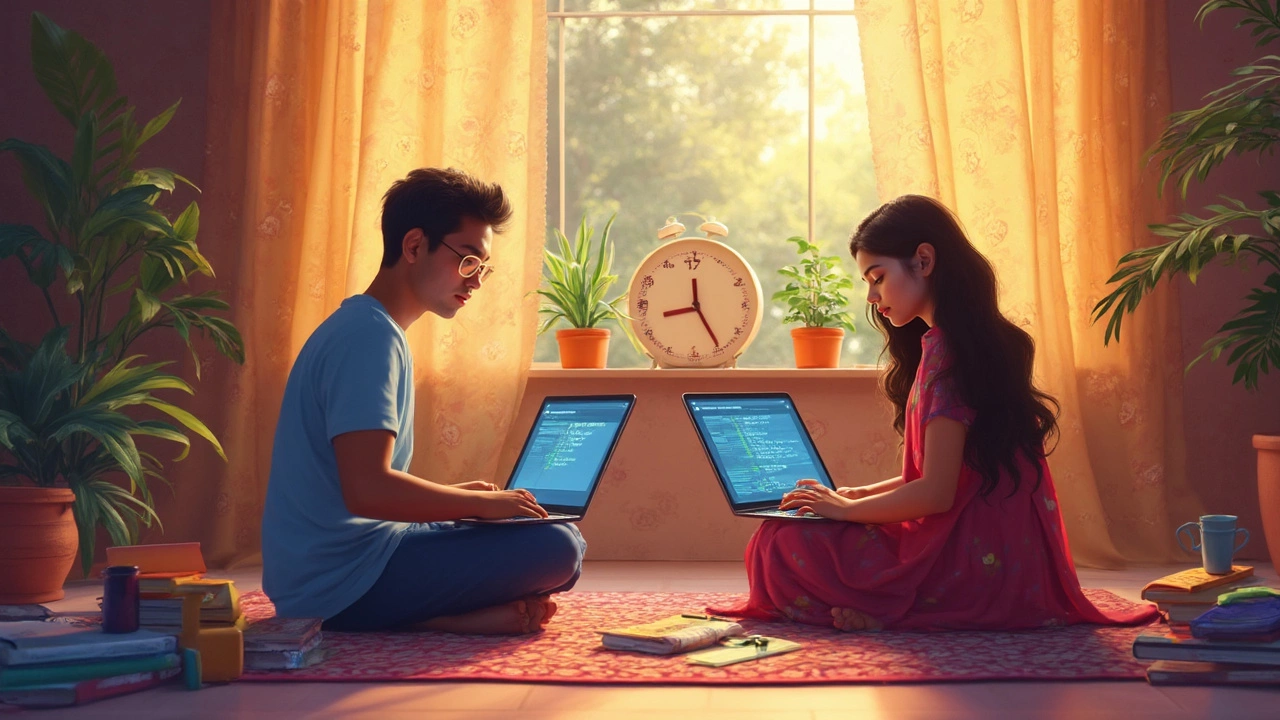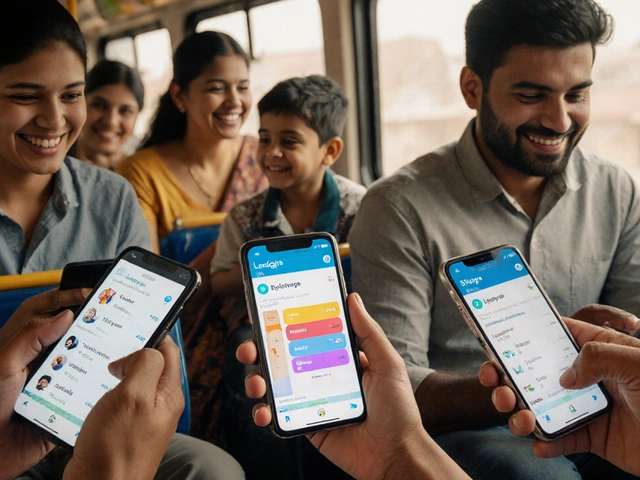Picture this: just a few years ago in Cape Town, a friend of mine landed his dream job as a web developer after just six months of learning to code, part-time, from YouTube tutorials and free online courses. Sound wild? He started from scratch—he didn't even know what HTML was. So, how fast can learn coding, really? The answer will probably surprise you. The truth is, some people will be writing basic code in a few weeks, while others might take months or longer. It comes down to what you're learning, how you learn, how much time you can spend, and what you count as ‘knowing how to code.’ Lots of folks think you have to be a genius or math whiz, but honestly, it’s more about patience, practice, and a bit of smart strategy.
What Affects How Fast You Can Learn Coding?
If you want to figure out your personal timeline, start with your goals. Are you aiming to build websites, design mobile apps, make games, or just automate a few chores on your computer? Each one has a totally different learning curve. For example, simple HTML and CSS for websites can be picked up in a weekend or two by a highly motivated beginner. On the other hand, learning data science with Python or building complex apps will require quite a bit more time—and a lot more brainpower.
Now, your previous background helps. Maybe you picked up some Scratch or Lego programming in school? Maybe you’re already good at solving puzzles? That sort of thinking helps a lot. But if you’ve never even opened a text editor, you might take a little longer.
Here’s another thing: how much time are you willing or able to put in? You can crush two hours a night and make massive strides in just a month, especially with focused practice. Weekend warriors can make progress too, but slower. Shout-out to the folks working full-time and still squeezing in code during coffee breaks—progress is slower, but still possible.
Motivation is a secret superpower. If you’re fired up—maybe you want to switch careers, or just want to impress your mates—you’re going to stick with it. Burnout is real, though, especially if you’re going too hard or skipping the fun stuff. The trick is to mix in hands-on projects early on. If you’re learning JavaScript, don’t just memorize syntax; build a calculator, make your own blog, or tweak an online game. When you see your code actually do something, it’s a rush that keeps you coming back.
Let’s get specific. A 2022 Stack Overflow survey showed most new developers spent between three months and a year learning before they landed their first paid coding gig. Some aggressive bootcamps in the US claim job-ready skills in 12 to 16 weeks, but these are usually full-time grindathons. Online platforms like Codecademy, freeCodeCamp, or Coursera give more flexible options, but self-pacing means it’s easy to lose focus.
But don’t get caught in the trap of shiny new languages. Pick one. Stick to it for a while. Most modern coders start with Python, JavaScript, or Java. Python is cleaner, and it’s huge for data science or automation. JavaScript is the lifeblood of the web. Java is solid for Android and backend work. All of them have mountains of tutorials, friendly forums, and real projects you can copy, tweak, and learn from.
Access to a community also speeds things up. When you bump into bugs—and you will—having someone on Reddit, Discord, or even WhatsApp to ask for help makes learning way less frustrating. Even the best coders Google errors a hundred times a week. Don’t tough it out alone.
Let’s not forget resources. Flashy video courses are cool, but digging into actual code on places like GitHub, or using interactive sites where you have to type out solutions (like LeetCode or Exercism), will get you out of ‘passive’ mode faster. Kind of like the difference between watching a soccer game vs. actually kicking the ball yourself.

Typical Timelines for Learning to Code
So, let’s get real—how fast can you expect to go from total beginner to “I know what I’m doing?” Here’s a breakdown based on real-life experience and what the data shows from popular learning platforms.
If you’re curious about just getting started—say, learning enough to whip up a basic website or change the background color on a page—most people can get there in as little as one to two weeks with regular daily practice. That’s maybe 10-20 hours, just to ‘get it.’ I’ve watched brand-new coders in Cape Town launch their first landing page in an afternoon at a hackathon. But this is just scratching the surface.
If you want to get comfortable—like, reading other people’s code, solving problems on your own, building simple apps—you’re looking at closer to 3-6 months with regular effort (think 5-10 hours per week). During this period, you’ll hit roadblocks, get totally stuck, and break through—usually just by asking for help, watching a walkthrough, or sleeping on it.
To feel confident applying for junior developer jobs, estimates vary based on commitment. Coding bootcamps in Europe and the US, for example, pack everything into full-time, 12–16 week courses (imagine 40 hours a week of hardcore learning). That’s around 500 to 1,000 total hours. But if you’re learning part-time, most folks need 9–12 months to reach that level, according to LinkedIn’s 2024 “New Developers in Tech” report. Employers care about what you can do way more than how many tutorials you watched. Show them your GitHub account packed with mini-projects, and you’re golden.
Let’s talk about expert-level stuff. “Mastery,” if you want to call it that—being able to design big software projects, optimize performance, or lead teams—usually takes years. You get faster at Googling, at breaking problems into chunks, at recognizing sneaky bugs. But that first job—getting paid to code—doesn’t require genius or decades of experience, just solid basics and some grit.
And don’t worry if you hit walls. Most coders feel stuck, lost, or like an impostor at least once a week, well into their careers. It’s all part of the process. That feeling goes away over time… or at least, you learn to ignore it and keep pushing through.
Here are some actual breakdowns of what you might do in the first few key stages:
- First Week: Basic syntax, print statements, running code. Maybe a simple calculator, like adding two numbers.
- First Month: Loops, conditionals, basic functions. Making small changes to tutorials. Building a simple project, like a quiz or a “guess the number” game.
- Three Months: Reading and fixing others’ code, using libraries, debugging skills. Building multi-page sites or small apps. Starting to understand documentation.
- Six Months: Tackling bigger projects, understanding the logic behind programs, maybe even applying for internships or junior roles.
- One Year: Building full portfolios, handling coding interviews, maybe even contributing to open-source projects.
Keep in mind, everyone’s journey is different. Some blow through these stages, some take detours—but pushing through the boring bits (and sticking with it when you’re frustrated) is how you get really good.

Tips to Learn Coding Faster and Make it Stick
Alright, you want tips you can actually use? First, ditch the perfectionism. Don’t get stuck trying to understand every tiny detail of a language before writing your first program. The best way is to learn just enough to try something out, then mess around, break it, and fix it. The fastest learners are the ones who experiment a lot, make mistakes, and ask questions right away.
Set a specific goal. Instead of “I want to learn Python,” try “I want to make a program that tracks my expenses,” or “I want to automate resizing images for my online shop.” Practical, real-world goals make learning sticky because you see results.
Mix up your resources. Videos are useful, but reading docs is where you pick up speed at cracking problems on your own. Interactive sites like freeCodeCamp, Codecademy, or Edabit hit both bases—learning and instant feedback. Github is packed with sample code and tiny real-world experiments; don’t be shy to peek at code and try to change things. If you’re in South Africa, there’s even a local organization, CodeSpace, hosting live workshops in Cape Town, which can give you both the framework and that “I’m not alone” feeling.
Make time for daily practice, even if it’s 15 or 20 minutes. Spaced repetition trumps cramming. You’ll remember more—and boring stuff will eventually become second nature. If you’re learning something tricky, teach it back to someone else (your dog, your neighbor, someone on Reddit)—it really cements things.
Don’t ignore bugs. Debugging is real coding. If you run into an error, google it, read the documentation, ask Stack Overflow… and when you fix it, write down what went wrong. Build your own “bug diary.” Next time the same error pops up, you’ll know exactly what to do.
Find a code buddy or a crew of learners. You’ll get better, faster, just by explaining things to each other. If you can, join a local code jam, hackathon, or online Discord server. Safe space to mess up, learn, and see that everyone struggles. I remember my first local hackathon—nobody finished on time, but every single person learned something awesome just from failing hard.
Lastly, don’t get distracted by shiny new tools every week. Learn one thing thoroughly. Python today, then maybe JavaScript. Once you’re thinking like a coder, learning new languages is way less scary—syntax changes, but problem-solving stays the same.
And here’s a strange one—celebrate small wins. Print out that “Hello, World!” on the screen? High-five. First time you fix a bug solo? Treat yourself to a good coffee. Keeping your own momentum is probably the best hack out there.
Realistically, learning to code isn’t a quick race. It’s more like hiking up Table Mountain—some days are easy, some are a slog, but every step gets you higher, and the view only gets better. Give yourself the freedom to go at your own pace, and don’t let frustration trip you up. Stick with it and, before you know it, you’ll be the one everyone’s texting for help with their next tech idea.




